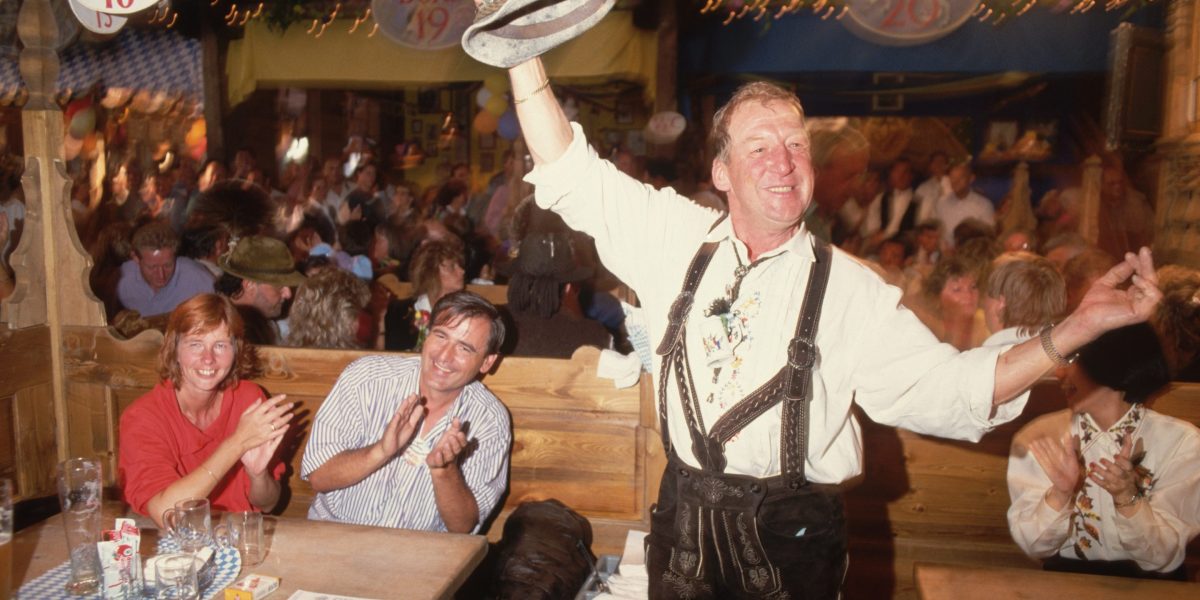

Some of the euro zone’s most upbeat consumers can be found in one of the region’s most sickly economies — Germany.
That mismatch was on display on Tuesday when the country was revealed as the only big member of the currency area to have suffered falling output during the second quarter. Survey data for July released concurrently showed yet another improvement in German consumer confidence.
Sentiment in Europe’s biggest economy, according to a gauge compiled by the European Commission, is now just shy of the level it was at in February 2022, when a slump took hold after Russia’s invasion of Ukraine. Neither France nor Italy are anywhere close to that threshold.
The divergence between increasingly cheery consumers and the stop-start path for the country’s economy, which has seen quarterly growth for less than half of Chancellor Olaf Scholz’s time in office, can partly be explained by rising pay.
“The development of real wages has played into this,” said Christiane von Berg, chief economist at credit insurer Coface. “Consumer sentiment isn’t as strong as before the pandemic, but purchasing power has risen.”
The confluence of increasing pay and weakening inflation pressures has been marked. In the first quarter of 2024, German workers saw a historic real wage gain — the highest since the data series began in 2008.
Other German sentiment indicators also improved in July. The country’s index of services confidence rose while it slumped in nearly all euro-area nations.
GfK, whose own consumption climate index last month showed an uptick in Germany too, sees better income prospects and slightly brighter purchasing power as key drivers of an upgrade in sentiment.
Other more fleeting factors than wages may also be at play. One could be the impact of the UEFA European Football Championship, which Germany hosted for a month starting on June 14.
Thousands of fans from all over the continent traveled to the nation, and Berlin alone expected the event to spur visits by 2.5 million sporting enthusiasts. The German team reached the quarter final before losing to Spain.
“It is highly likely that the euphoria triggered by the European football championship in Germany in large parts of the population plays a role,” Rolf Buerkl of the Nuremberg Institute for Market Decisions said. “It remains to be seen whether this effect is sustainable.”
Yet past football tournaments don’t show a clear pattern of enduring impact on sentiment. Von Berg wonders whether Taylor Swift played more of a role this time round.
“The Euro Cup didn’t contribute that much, also given the higher government outlays for the event,” she said. “On the other hand, the seven Taylor Swift concerts increased consumption while not necessitating high state contributions.”
Whatever the reason for Germany’s cheerier consumers, they might struggle to keep such an upbeat demeanor. Aside from Swift’s concert tour moving on elsewhere and the football championship being over, there may be a limit to how far companies can raise pay in a weak economy.
The current number of bankruptcies is at its highest since summer 2016. Falling industrial production in Germany’s once-mighty manufacturing base may make it harder for companies to keep increasing wages, threatening the current joyful mood.















